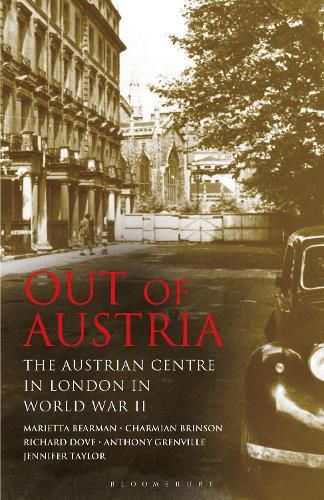Readings Newsletter
Become a Readings Member to make your shopping experience even easier.
Sign in or sign up for free!
You’re not far away from qualifying for FREE standard shipping within Australia
You’ve qualified for FREE standard shipping within Australia
The cart is loading…






The Austrian Centre was established in London in 1939 by Austrians seeking refuge from Nazi Germany, of whom 30,000 had reached Britain by the outbreak of World War II. It soon developed into a comprehensive social, cultural and political organisation with a theatre and a weekly newspaper of its own. A Communist-influenced organisation, it also followed a distinct political agenda. In the first book on the cultural and political life of Austrian refugees in Britain, Out of Austria assesses and evaluates the Austrian Centre’s activities and achievements, while also examining the Austrians’ often fraught relations with their British hosts. It gives a fascinating insight into such figures as Sigmund Freud, who became the Centre’s Honorary President during his final months and the poet Erich Fried, then an unknown seventeen-year-old, k and sheds light on the interaction of politics and culture against the background of exile in wartime Britain.
$9.00 standard shipping within Australia
FREE standard shipping within Australia for orders over $100.00
Express & International shipping calculated at checkout
The Austrian Centre was established in London in 1939 by Austrians seeking refuge from Nazi Germany, of whom 30,000 had reached Britain by the outbreak of World War II. It soon developed into a comprehensive social, cultural and political organisation with a theatre and a weekly newspaper of its own. A Communist-influenced organisation, it also followed a distinct political agenda. In the first book on the cultural and political life of Austrian refugees in Britain, Out of Austria assesses and evaluates the Austrian Centre’s activities and achievements, while also examining the Austrians’ often fraught relations with their British hosts. It gives a fascinating insight into such figures as Sigmund Freud, who became the Centre’s Honorary President during his final months and the poet Erich Fried, then an unknown seventeen-year-old, k and sheds light on the interaction of politics and culture against the background of exile in wartime Britain.